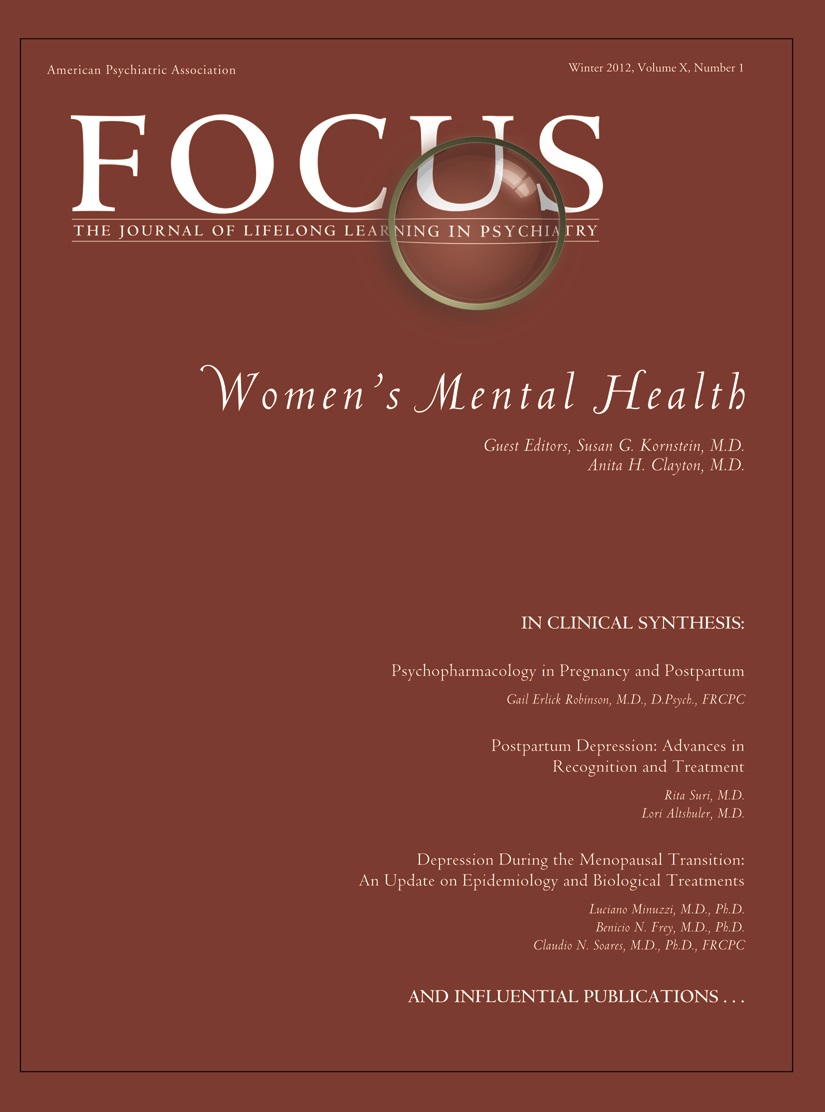Abstract
The postpartum period is a time of increased vulnerability for depression in women. Women with a prior psychiatric history are at increased risk for postpartum depression. Other risk factors include psychological, social, and biological contributions. In addition to depressive symptoms, episodes of postpartum depression are often characterized by marked anxiety. Untreated symptoms of postpartum depression can have significant effects on the maternal-infant relationship as well as on the development of the child. Treatment necessitates a multimodal approach, with consideration given to education, support, psychotherapy, and biological treatment options. When pharmacological treatment is considered, the role of breast-feeding must also be taken into account. Early identification and intervention for the symptoms of postpartum depression are imperative to assure the well-being of the mother, child, and family.



